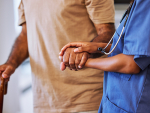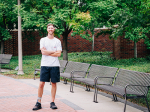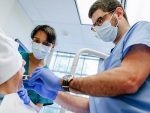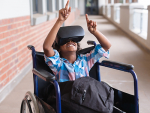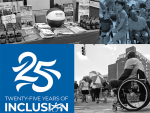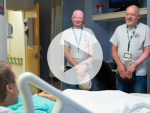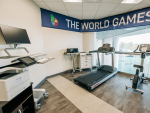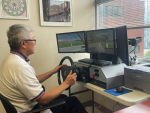Displaying items by tag: department of physical medicine and rehabilitation
UAB Sports and Exercise Medicine providers share their top tips for injury prevention among performing artists.
Tagged under
Research suggests that gratitude can help people manage difficult emotions more effectively and have better control over their reaction to negative events.
Giving back has physical and mental benefits, including boosting happiness, reducing stress and enhancing self-esteem.
UAB helps meet the needs of adults with spina bifida by providing care as one of the only adult spina bifida clinics in the Southeast.
Tagged under
This designation recognizes rehabilitation facilities that lead the nation in medical research and complex treatment and that drive innovative research for the entire field of rehabilitation.
Tagged under
After two months in the hospital, Blake was sent home the day before his 30th birthday. Since Blake has been home, he has continued to attend therapy sessions and take steps to regain his independence.
Tagged under
Tagged under
UAB researchers are combining behavioral change theories, telemedicine and extended reality as they work to improve the physical and mental health of children with disabilities.
Tagged under
The NCHPAD has had a nationwide impact promoting the health, wellness and inclusion of people with disabilities into all areas of life.
Tagged under
UAB’s strategic planning continues to blaze its path to improve more lives by leveraging construction projects that include new and enhanced facilities across the institution, blooming green spaces and art installations.
Tagged under
- release
- office of the president
- facilities
- college of arts and sciences
- school of engineering
- department of biology
- department of physics
- department of chemistry
- department of biomedical informatics and data science
- student affairs
- school of medicine
- office of the senior vice president for finance and administration
- department of psychology
- school of nursing
- department of art and art history
- uab hospital
- department of emergency medicine
- strategic plan
- department of physical medicine and rehabilitation
- students
Megan Hays, Ph.D., explores five common productivity killers and offers practical solutions to overcome them.
After having a below-the-knee amputation, former SEC football player Ka’Darian Hill is using his story to motivate and inspire others.
Tagged under
Tagged under
Tagged under
Burn survivor who received innovative “spray-on skin” treatment now giving back to UAB burn patients
Tagged under
The multidisciplinary clinic will offer a full spectrum of sports and exercise medicine services to patients, including non-operative and surgical procedures and nutritional, biologic injections, cardio, exercise in pregnancy, and physical medicine and rehabilitation services.
Tagged under
UAB researchers aim to look at the value of using a driving simulator to predict on-road driving performance after TBI.





